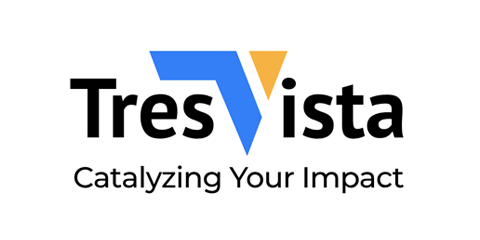Financial Modelling Course in Bangalore
-
Master Financial Modelling with Real-World Case Studies in Bangalore
- Build job-ready skills with our NSE certified financial modelling course in Bangalore, trusted by leading employers and designed for real-world application. Offered by ArivuPro Skills, this industry-recognized financial modelling certification program combines advanced Excel training, financial forecasting, and valuation techniques to prepare you for high-demand roles in finance.
- Certified by NSE Certification/ ArivuPro Skills Certification
- Duration : 100+ Hours
- Hands on Learning
- Offline Classroom Learning/ Live Online Classroom Learning
- Get Placed by our Top Recruiters


Program Highlights – Financial Modelling Course in Bangalore
Certified by NSE & ArivuPro Skills
Stand out with an NSE-certified financial modelling course in Bangalore, recognized by top investment banks, corporate finance firms, and equity research companies across India.
100+ Hours of Intensive Training
Master financial modelling and valuation from the ground up with over 100 hours of hands-on learning — including Excel-based modelling, DCF valuation, comparable company analysis, and scenario planning.
Flexible Classroom Learning for Students and Professionals
Tailored for college students, working professionals, and MBA aspirants, our flexible classroom-based training in Koramangala offers hands-on learning with expert instructors, designed to fit your schedule and career goals.
Hands-on Learning with Real-Time Case Studies
Work on real financial statements, annual reports, and live company case studies to build three-statement models, merger & acquisition models, and more — all guided by finance industry experts.
Excel Mastery + Valuation Techniques + Power BI
Gain fluency in Microsoft Excel for financial modelling, advanced valuation techniques (including DCF, Relative Valuation, LBO), and learn Power BI basics to create interactive financial dashboards.
Get Future-Ready with Financial Modelling
Learn how to predict business performance like a pro
Build smart financial models that help you analyse numbers, forecast growth, and make better business decisions.
Step confidently into roles like Investment Banker or Financial Analyst
This course opens doors to exciting careers in finance, where your skills will truly matter.
Work on real-world data, not just theory
From Excel spreadsheets to valuation models – you’ll practice everything using actual company reports and industry case studies.
Start thinking like a finance expert
Understand what drives business success and use your insights to solve real financial challenges.
Get certified by NSE or ArivuPro Skills
A credential that adds real value to your resume and shows employers you're job-ready
Choose the way you learn – classroom or live online
Whether you prefer in-person interaction or the comfort of online classes, we’ve got you covered.
Future-proof your career with in-demand financial skills
In today’s finance world, knowing how to build and read financial models isn’t optional, it's essential.
Tools you will master


Curriculum: Financial Modelling Course
Introduction to Financial Modelling
- Definition.
- Importance of financial modelling.
- Uses of financial modelling.
- Types of financial modelling.
- Excel navigation – short cut keys for efficiency, data validation, conditional formatting, if statements, pivot table, vlookup, hlookup, xlookup, index – match, npv, irr, as such.
Understanding Financial Statements
- Income statement – revenue, cost of goods sold [cogs], gross profit, operating expenses.
- Balance sheet – accounting equation, assets, liabilities & shareholders’ equity. Further, study on deferred revenue, advance billing, accruals & prepaid, minority interest, working capital management deferred tax [books v tax] as such.
- Effect of changes in one statement affecting other statements including statement of changes in equity.
- Financial ratio analysis :
- Profitability Ratio – Gross Margin, Net Margin, ROE, ROA, ROCE.
- Liquidity Ratio – Current Ratio, Quick Ratio as such.
- Leverage Ratio – Debt to Equity Ratio, Asset to Equity Ratio, Debt to EBITDA Ratio.
- Efficiency Ratio – AR Ratio, AP Ratio, Inventory Turnover Ratio, Asset Turnover Ratio.
Capital Budgeting and Cash Flow Analysis
Capital Budgeting Analysis
- Net Cash Flow, Cumulative Cash Flow, NPV, IRR and Payback Period.
Sensitivity & Scenario Analysis
- Using MS Excel functions What If Analysis, Goal Seek, Data Table.
Cash Flow Statement
- Operating, Investing & Financing Cash Flows.
- Direct Method v Indirect Method.
- Importance of Cash flow in financial modelling.
Three Statement Model
Built based on financial forecasting & assumptions.
- Identify key revenue and cost drivers.
- Cost Analysis.
- Cash Flow Statement.
- Depreciation method & schedule.
Comparable Company Analysis (CCA)
Built based on financial forecasting
& assumptions.
- Identify & select comparable companies based on size, growth, geographical location, industry or type of sector, production, market capitalization. Valuation Multiples – Market Value Data, Financial Statement Information, EV/Revenue.
- EV/EBITDA, P/E Ratio, Implied Enterprise Value, Implied Market Value of company, Implied value per share.
- Interpretation & Analyze company with peer comparisons to determine relative valuation
Discounted Cash Flow (DCF) Model
- Time value for money – present value, future value.
- Free Cash flow to firm (FCFF).
- Weighted Average Cost of Capital – Cost of Debt, Cost of Equity using CAPM.
- Terminal Value – Perpetuity Growth & Exit Multiple (EV/EBITDA).
- Discount rate & Present Value.
- Enterprise Value to Equity Value.
Leverage Buyout (LBO) Model
- Private Equity firms evaluating acquisition targets.
- Debt Schedule, interest repayments, IRR, equity waterfall.
- Analysis of potential returns for investors after the debt repayments.
- Understand leverages, equity contributions and buyout structures.
- Exit Strategies evaluation.
Mergers & Acquisition (M&A) Model
- Build integrated models for combined entities.
- Focus on synergies, deal structuring.
- Accretion / Dilution analysis.
- Purchase price allocations, goodwill, combined P&L projections.
- Investment bankers, corporate strategy teams use this model.
Project Finance Model
- Used for long-term infrastructure or development projects with structured financing.
- Public-private partnerships [PPP], energy projects or construction projects.
- Project feasibility and financial viability.
- Cash flow waterfall & project finance structure.
- Loan schedules, Debt-service coverage ratio (DSCR).
Initial Public Offering (IPO) Model
- Valuation of company before going public.
- Share dilution, Market capitalization, P/E multiples.
- Help underwriters set a price range for shares and project future performances.
Risk Management
- Credit Risk.
- Liquidity Risk.
- Value at Risk (VaR).
Forecasting Techniques for Revenue Growth
- Top-down vs Bottom-up Approach.
- Regression Analysis and Trend forecasting.
- Seasonality & Economic Factors.
Sensitivity & Scenario Analysis
- Key Variables and stress testing models.
- Monte Carlo Simulation Techniques.
- Break even Analysis
Power BI & Visualization in Financial Modelling
- Introduction to Power BI for Finance.
- Data Importing & Cleaning.
- Creating Dashboards & Reports.
Career Support & Outcomes – Financial Modelling Course in Bangalore
Complete Career Support for Finance Professionals
Our career assistance program is tailored to help you confidently step into top-tier finance roles. We offer:
- Resume building optimized for investment roles
- Mock interviews with real-time feedback
- Placement support with our corporate partners
Job Roles Our Learners Have Secured
Graduates of our financial modelling course in Bangalore have successfully transitioned into high-growth careers such as:
- Investment Banking Analyst
- Equity Research Associate
- Financial Planning & Analysis (FP&A) Executive
- Corporate Finance Manager
- Credit & Risk Analyst
- Whether you're entering finance for the first time or upskilling for a promotion, this program prepares you for in-demand, high-paying roles in both startups and MNCs.

Top Hiring Companies










Get Certified
Upon successful completion, receive a Certificate from NSE & ArivuPro Skills that adds
strong credibility to your resume and LinkedIn profile
FAQs
Yes, we offer a top-rated financial modelling course in Bangalore, with training conducted at our Koramangala center as well as through live online sessions.
Yes, we conduct Koramangala financial modelling classes with weekday and weekend batch options.
Yes, upon completion, you will receive an NSE-certified financial modelling certification, which is recognized by leading financial institutions.
Our certification is valued for its practical approach, NSE accreditation, and relevance in investment banking, corporate finance, and equity research domains.
Yes, this is an industry-recognized financial modelling course in Bangalore, with a strong track record of placing students in top-tier finance roles.
Yes, we provide Excel financial modelling training in Bangalore, covering shortcuts, formulas, dynamic models, and data visualization.
Yes, our DCF valuation course in Bangalore is integrated into the curriculum and includes real-company case studies.
Definitely. Our course includes three-statement model training that covers the income statement, balance sheet, and cash flow projections.
Yes, the program includes a sensitivity-scenario analysis course component where you learn how to evaluate best/worst case financial outcomes.
Yes, this is a complete financial analyst training course in Bangalore, designed to prepare you for analyst roles in various finance domains.
Absolutely. We offer an investment banking modelling course as part of our curriculum, focusing on pitch books, deal modeling, and valuation.
Yes, we offer placement support for our financial modelling students, including resume help, mock interviews, and job referrals.
This is a hands-on financial modelling course with real-world projects, Excel practice, and case studies from actual companies.







